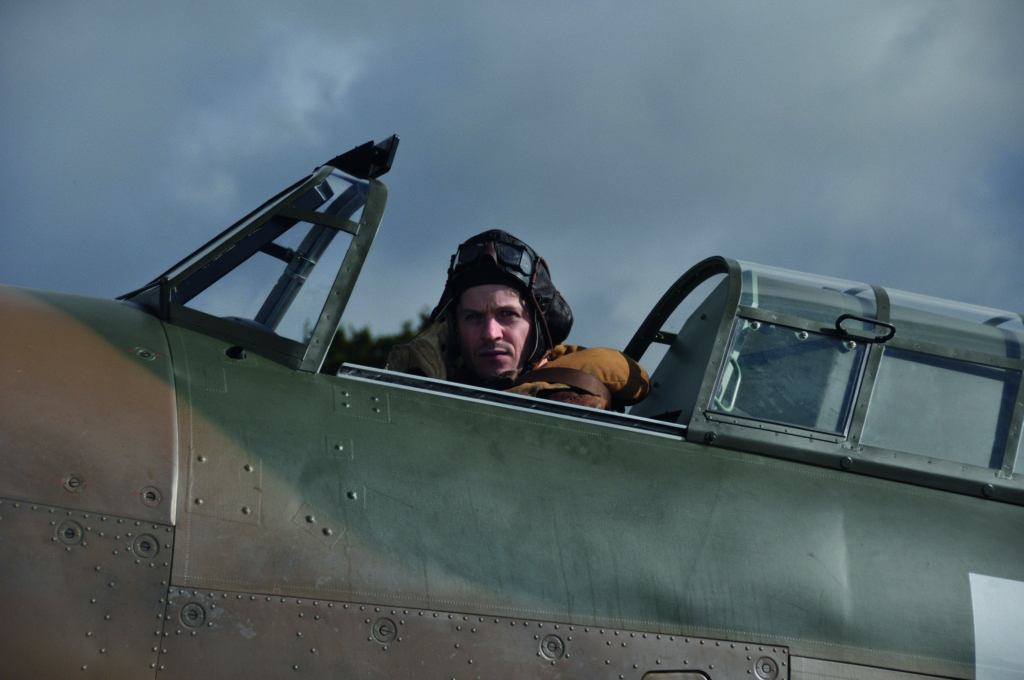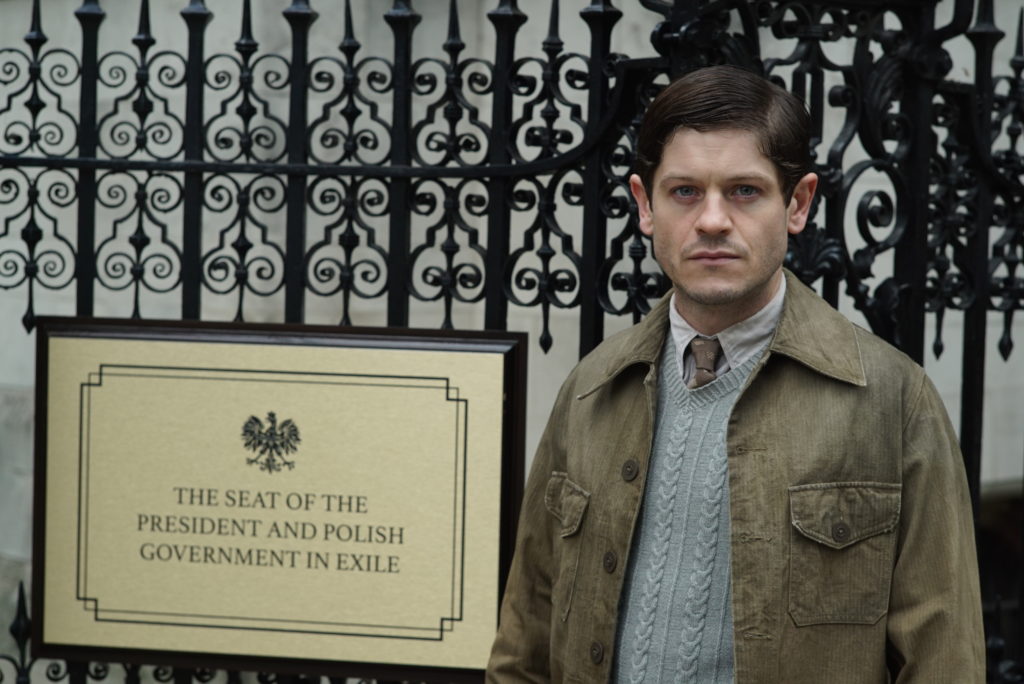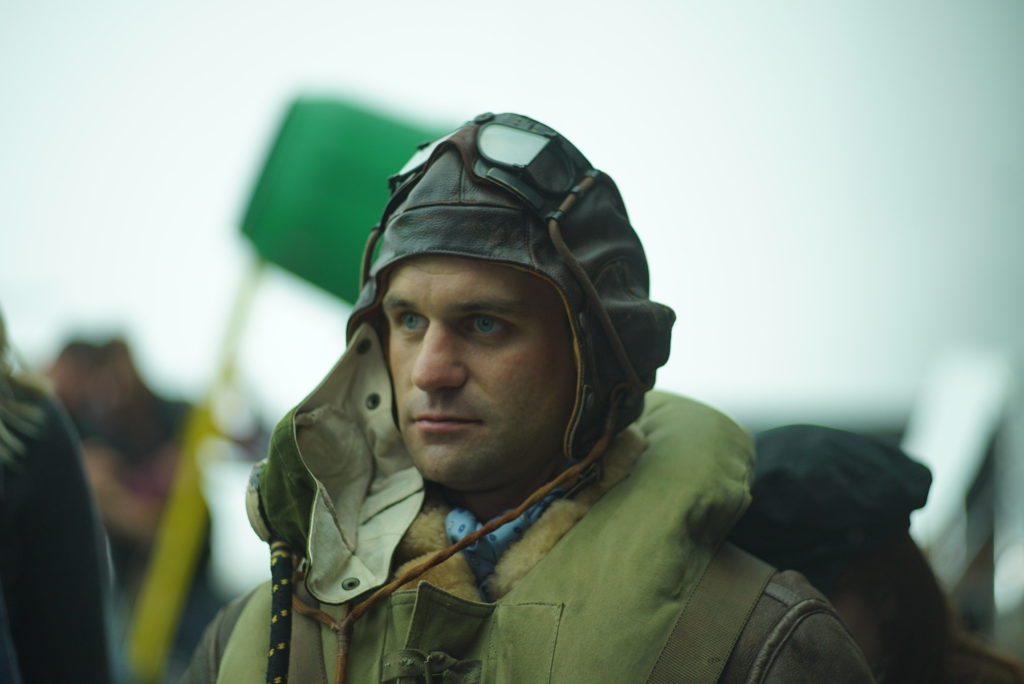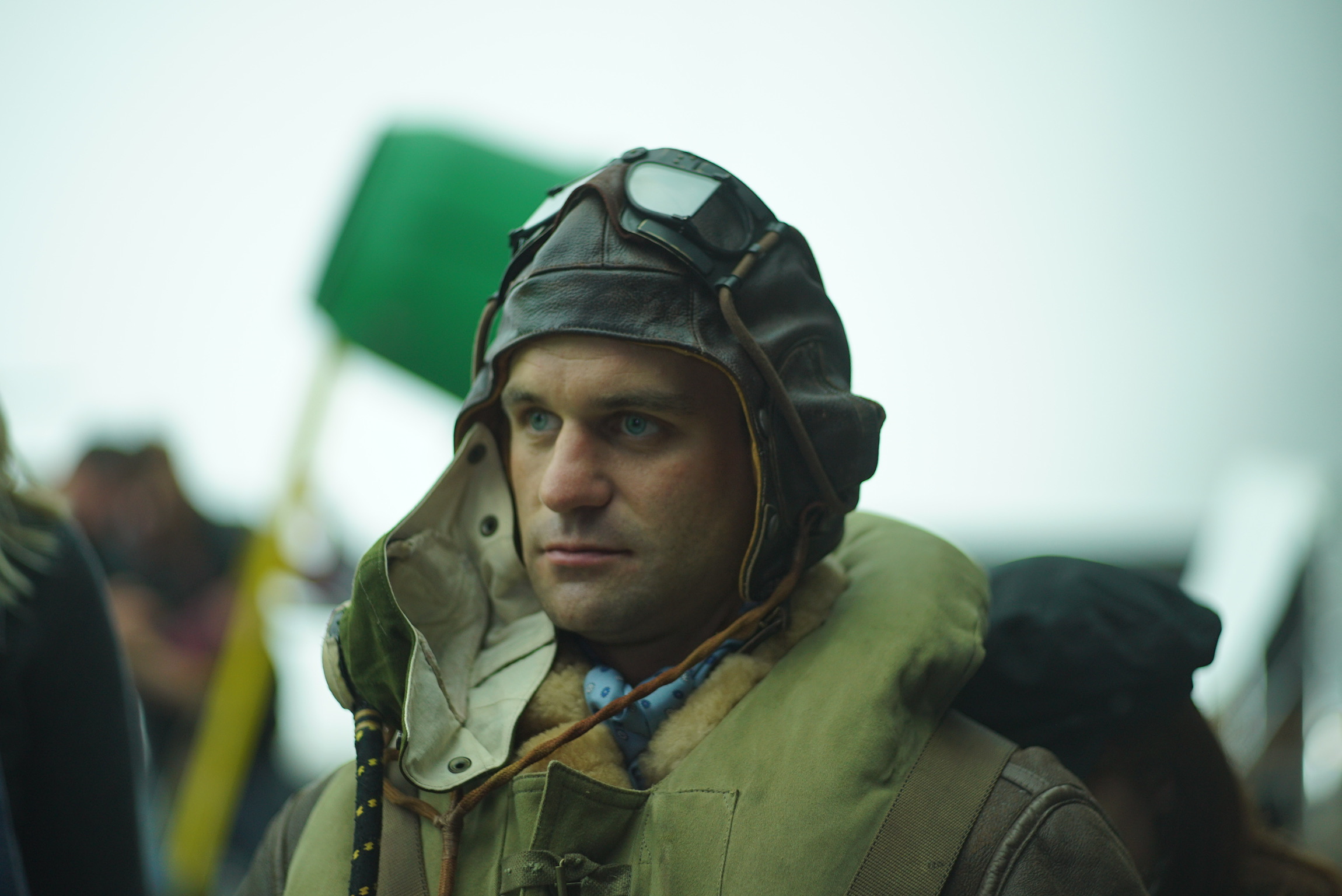Hurricane tells the story of the storm that raged over England in the summer of 1940, and the Polish pilots that came to defend Britain against German invasion. The historical thriller is set to hit cinemas and digital platforms on 7 September, so documentary filmmaker Marianna Bukowski spoke to Hurricane’s director, David Blair, about the different challenges of bringing history to the big screen.

It’s wonderful to see a Scottish director bring the story of Polish Pilots fighting in the Battle of Britain to the big screen. What specifically attracted you to directing and telling this story?
Self-sacrifice as much as anything. It’s one thing to fight for a cause ‘in a far-away land’ but to do so while all sorts of horrors are taking place back home – of which you’re restricted to scant detail – made the story compelling – but heart-breaking too. Having said that, I’m sure what was taking place back in Poland acted as a spur and incentive for these courageous men to keep going.
I was also attracted to the notion that it bad been, for so long, almost a taboo subject. I was aware also, that few people outside of Poland were familiar with these men and just how significant their contribution to winning the Battle of Britain had been. In the UK, we’re forever told that ‘we’ won the war.
Information appertaining to that rarely acknowledges the input of millions from around the globe. Poles, Czechs, Canadians, Australians, South Africans etc. And even, dare we say it, Muslims! Amidst all the jingoistic nonsense, it would dampen our ardour to consider that we didn’t quite manage it all on our own.
When did you first hear about the Polish contribution to the Battle of Britain?
I was unaware of the extent of their contribution. I’d always known there had been Polish pilots involved in the battle but very little detail about their exploits. So, in truth, it was becoming a part of the movie that enlightened me to the true facts.
As I was growing up, there was little inclination in history lessons to point up the contribution made by ‘foreigners’ to our war effort. The English are particularly skilled at taking the glory for other people’s endeavours.
The pilots of 303 are legendary, especially in Poland, but in the film some of their storylines take creative liberties. Could you tell us a bit more about the creative choices made between fact and fiction narrative in this film? When did you feel that taking more of a creative licence was right and why in those particular instances?
This is always the most difficult question when you’re telling a story that’s based on fact. While it’s one thing to get the story ‘out there’, it’s another to try and ensure people see it! I suppose, in the final analysis, I wanted to dramatise it, not document it.
I remember a long time ago an eminent writer friend of mine made a film about, again, a story based on truth. It bombed. Sometime after, he confided in me that the reason it failed was because he made the mistake of being too loyal to the men it was portraying, sticking resolutely to the facts.
So it pleased those same men – but it failed as a film and nobody watched it – and the writer rued placing more emphasis on the story than the film. More to the point, fewer people got to understand the cause of the men portrayed.
Closer to home, as a Scot, Mel Gibson ‘took liberties’ with Braveheart but the essence of Wallace became international and for that, I’m hugely grateful.

So the crucial part of this, for me, has always been to get it to as wide an audience as possible and that inevitably led to some difficult choices. We had to make the story about more than just the battle in the air, more than the men’s undeniable bravery.
We had to vary the tone, embracing other aspects including the isolation of people far from home, the effect they had on the RAF and the Brits – while also exploring how the men reacted to the conflict itself – but as individuals.
Obviously, in the quest for emotional, physical and social diversity – plus the process of making them as three dimensional as possible – we felt it necessary to drift from the absolute truth on occasions.
Having said that, with everything we did, I insisted we remain true to the spirit and integrity of the Polish fighter pilots. I hope that has not been compromised.
No human life or true event smoothly follows the storytelling arc of a film, and creating anything always demands some forms of compromise, not least by the very grounding realities of time and budget. What did you find most challenging in bringing this story to the screen?
It was a really tough, demanding five week shoot. It put into perspective just what can be achieved with moderate finances. Since there wasn’t, of course, a bottomless pit of money. We were trying to achieve a lot with nowhere near a ‘blockbuster’ budget.
I guess as a director – and therefore a control freak (!) – finding myself finishing the shoot with only two thirds of the film in the can was hard to accept. I’ve never worked on anything that depended so much on visual effects and the time waiting for those shots to ‘come online’ was pretty nerve-wracking.
Months before we started shooting I had to write down in minute detail every flying sequence. Quite an effort, given I didn’t have at my fingertips the knowledge of how this would be achieved.
So challenging but, also, hugely rewarding as the images started to manifest and were merged with what we’d already filmed – be it from the ‘dummy’ cockpit, the full-scale replica, or stuff we’d shot in the air.
Was any part of the film shot at the airfield in Northolt, where 303 squadron was based during the war, and did you have a chance to use an authentic Hurricane aircraft in any of the scenes?
No, none of it was shot at Northolt. We scouted that particular location but it was too far removed from how it looked in 1940 to use it.
An authentic Hurricane WAS used but the battle sequences comprise a combination of the real thing, a full-scale replica on a movable plinth and a grounded cockpit, the latter two with CGI added.

One of the famous tactics of Polish pilots was to fly incredibly close to the enemy and even “ramming” enemy planes. In the film this is shown in a very intense dogfight scene – could you tell us a bit more about where this account is from?
We obviously had to try and achieve what was practicable so had to shift certain aspects to accommodate what could be achieved. However, in the book No Greater Ally: The Untold Story of Poland’s Forces in WWII by Kenneth K Kosdan the author states:
“Faced with spent ammunition or malfunctioning guns, Polish pilots were known to ram enemy bombers, chew off wing tips or tails with their propellers, or manoeuvre their planes on top of the Germans and physically force them into the ground or English Channel.”
I was very impressed with Iwan Rheon as fighter pilot ace Jan Zumbach – and Rheon’s incredible dedication to delivering so much of his performance in Polish. Could you share some of your thoughts around that, and how it was to direct scenes where actors speak in Polish?
I agree. A very brave decision on Iwan’s part and one I believe he executes with aplomb. My own collection of films is awash with non-English speaking titles so it would have been hypocritical of me to embark upon this project with the prospect of the story being told by some dodgy accents!
Also, these men are hugely important to the Poles; it would have been an insult to depict them in any other way. At least that’s how I felt. In any case, the lingual conflict is very much a part of the story we were telling. Of course, it was breaking new ground for me, directing not in my own language.
I thought it would be fairly traumatic, in all honesty.
Although acting, to an extent, is a universal language so you should ‘feel’ the emotion, irrespective of how it’s spoken. At least that’s what I kept telling myself! Fortunately I had great back-up from my DoP, Piotr Sliskowski and the communication was remarkably straightforward – down to the actors speaking English, I must add, rather than my speaking Polish, regrettably.
But the actors responded brilliantly – a real pleasure to work with and an experience I’d repeat if given the opportunity. They all delivered ‘a something’ that was exclusively theirs.
The film also doesn’t shy away from the subject of Britain’s shameful treatment of its Polish Allies as the war ends, and it’s focus on Polish – British relations, in view of today’s political climate, feels as important as ever…
These men were instrumental in winning the Battle of Britain yet in time-honoured English tradition, the majority of the population wanted them deported after the war – once they’d fulfilled their usefulness. Not unlike what we’re trying to do in the UK today with our insensitive, demonic approach to immigration.
Hurricane is released in cinemas and on digital platforms on the 7 September
